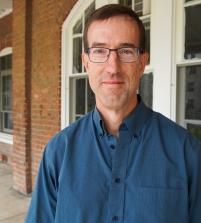Supreme Court Theology — Brian Britt
College religion courses come in many varieties, with no consistency in labeling
College religion courses come in many varieties, with no consistency in labeling. "Theology" at one school may be called "religious studies" at another, and at still others missionaries are trained under the rubric of "intercultural studies." While many church-affiliated colleges minimize their denominational identity, the study of theology flourishes at some state universities, and non-denominational Christian colleges, according to a recent New York Times article, have grown 67 percent in the last ten years.
These conflicting trends reveal unresolved tensions about religion and higher education in American life. Is the study of religion a kind of religious practice? Is a major in religion, or any other subject, really just a form of job training? With its 7-2 decision in February to uphold a Washington state law denying scholarships to theology and ministry students (Locke v. Davey), the Supreme Court has calmed the nerves of People for the American Way and others worried about government support for "faith-based" institutions, but it has also codified two major confusions in the law of church and state.
In the case, Joshua Davey was denied a state scholarship available to all undergraduate majors except "theology" majors. While Davey's major in pastoral ministries was undoubtedly designed to prepare for a career in the church, the statute in question applies to "theology" without defining the term, a problem overlooked even by the dissenting opinion of Justices Scalia and Thomas. In fact, Davey's college study led him to Harvard Law School, where he is currently enrolled.
The first confusion here is the idea that the boundaries of church and state are crossed only by "theology" majors. Davey attended Northwest College, a fully-accredited evangelical institution affiliated with the Assemblies of God. Northwest offers many religiously-based undergraduate majors. Students who major in intercultural studies at Northwest, for example, take courses on "Intercultural Ministries" and "Multicultural Evangelism." The entire curriculum is permeated by the religious identity of the college. As Chief Justice Rehnquist admits, the vague state law must be read along with the state constitution, which prohibits state funding of degrees that are "devotional in nature or designed to induce religious faith," a standard that could apply to all degrees at Northwest.
The second, related confusion is the implication that all theology majors are studying to prepare for the ministry. Even the two dissenting opinions blur theology and ministry, claiming that "Today's holding is limited to training the clergy." Most departments of theology and religious studies belong to the humanities and liberal arts, beside English, history, and philosophy. Religion students are famously impractical people, but at schools like Williams College or Virginia Tech (where I teach) those who go on to the ministry are a minority. Most theology and religion faculty belong to the American Academy of Religion, an organization of over 9,000 members whose primary mission is to promote "reflection upon and understanding of religious traditions, issues, questions, and values," not the training of church leaders.
With provisions in thirty-seven states strictly preventing the use of state funding for religious purposes, legal scholars attribute laws like Washington's to the legacy of the anti-Catholic Blaine amendments of the nineteenth century. And at least fourteen states specifically bar theology students from receiving state aid. The Washington law ("[n]o aid shall be awarded to any student who is pursuing a degree in theology") does not dispute the educational validity of theology majors, which are offered at accredited and mostly tax-exempt institutions, but takes exception to what these majors might go on to do. It seems likely that the Supreme Court case will have implications for all of these state laws, though Locke v. Davey leaves the meaning of "theology" totally unclear.
An even greater misunderstanding lies in the popular notion, reinforced by the majority and minority in this case, that all undergraduate majors match directly to specific careers. Despite pleas from professional and graduate schools for broadly-educated students, and a rapidly-growing rate of career changes in the workforce, many students are advised by parents and faculty to make a one-to-one link between the major and the career beyond it.
By upholding the law withholding scholarships from theology students, the Supreme Court has done more than assuage civil libertarians; it has reinforced the confusion between religious study and practice and perpetuated the caricature of higher education as vocational training.
Brian Britt is an Associate Professor and Director of the Religious Studies Program, Department of Interdisciplinary Studies at Virginia Tech.


